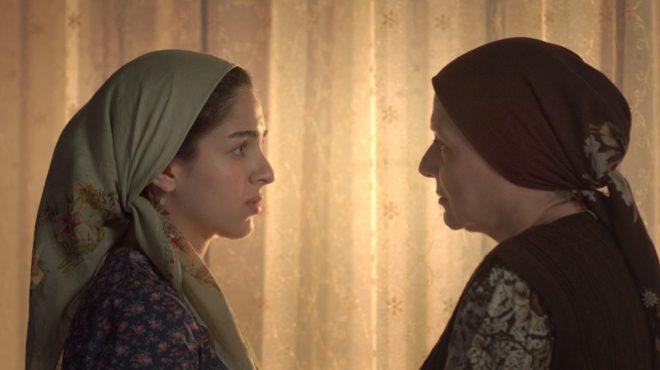Umut Dağ / Austria / 2012 / 93 min
After recent offensive comments from David Jones, the family unit has been brought under scrutiny. Umut Dağ’s Kuma explores how a close-knit family reacts when an outsider is introduced. Nineteen-year-old Turk Ayse (Begüm Akkaya) is supposedly marrying the young Turkish-Austrian Hasan (Murathan Muslu). Upon moving to Vienna however, it’s revealed she’s actually to be the second wife (kuma) of his elderly father Mustafa (Vedat Erincin), a plan hatched by his terminally ill first wife Fatma (Nihal G. Koldas).
The claustrophobic confinements of the humble apartment teeming with myriad family members emphasise the significance of family, with Ayse thrown in amongst them like a gladiator to the lions. Ayse suffers stoically, her pragmatic approach to her unenviable position and her willingness to play along with the humiliating plot reinforcing the profound importance of retaining the family honour. The matriarchal Fatma is an ominous, ever-present figurehead, looming over the action with a judicial air. Fatma and Ayse’s relationship is peculiar, like someone with Stockholm syndrome Ayse allows herself to be groomed as Fatma’s replacement. It’s this connection that’s at the film’s root because even with growing self-assurance, Ayse’s still ashamed of betraying Fatma’s trust at following her own agenda. Kuma is a story of Ayse’s sacrifice, but it’s also a depiction of the powerful familial bonds that can overwhelm rationale and self-interest.
Showing as part of the Glasgow Film Festival 2013
Follow Callum on Twitter @CWMadge
